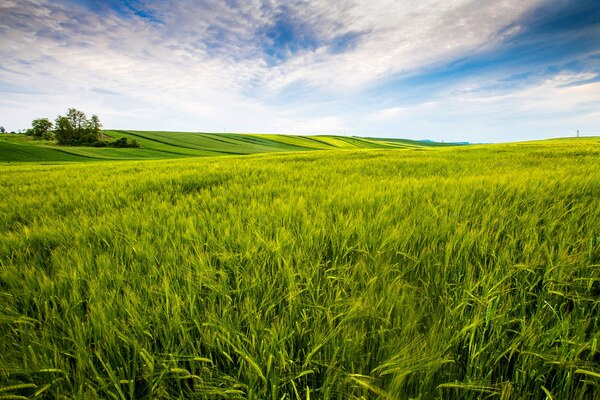The Future of Sustainable Farming in England
As the world grapples with the effects of climate change, depleting natural resources, and an ever-growing population, the need for sustainable farming practices has never been more pressing. England, with its rich agricultural history and diverse landscapes, is at the forefront of this transformative shift towards sustainability in farming. The future of sustainable farming in England is not just a necessity; it's an opportunity to lead in eco-friendly agricultural practices that can serve as a model for the rest of the world.
One of the key components of sustainable farming is reducing the carbon footprint of agricultural activities. In England, farmers are increasingly adopting practices that minimize emissions and increase carbon sequestration. This includes the implementation of no-till or reduced-till agriculture, which helps maintain soil health and reduce carbon release. Additionally, integrating agroforestry—where trees and crops are grown together—enhances carbon capture and boosts biodiversity.

Water management is another critical area where sustainable farming practices are making a significant impact. England's varied climate results in unpredictable rainfall patterns, from prolonged droughts to intense flooding. Farmers are now investing in efficient irrigation systems and rainwater harvesting techniques to optimize water use. Moreover, the cultivation of drought-resistant crop varieties is being actively researched and implemented to counter the challenges posed by climate change.
Biodiversity conservation is at the heart of sustainable agriculture, and England's farmers are reimagining their roles as stewards of the land. Crop rotation, cover cropping, and organic farming are being widely embraced to enrich soil biodiversity, reduce pesticide use, and promote natural pest controls. By preserving hedgerows and maintaining wildflower margins, English farmers are supporting habitats for pollinators and other beneficial wildlife.
Technology also plays a crucial role in the evolution of sustainable farming in England. Precision agriculture, which utilizes GPS and satellite data, allows farmers to optimize field-level management regarding crop farming. This technology helps in applying fertilizers and pesticides more efficiently and only where necessary, reducing environmental impact and improving crop yield. Robotics and automation are being leveraged to streamline everything from planting to harvesting, making farming both economically and environmentally sustainable.
The concept of regenerative agriculture is gaining traction as well, focusing on restoring soil health and ecosystem resilience. Practices such as composting, mulching, and using natural fertilizers are being implemented more broadly to support this goal. Regenerative agriculture not only enhances soil composition but also improves water retention and promotes higher nutrient density in crops, benefiting both the environment and human health.
Support from government policies and incentives is vital in propelling the sustainable agriculture movement forward. The UK government has introduced the Environmental Land Management scheme, which rewards farmers for environmental stewardship. These policies aim to ensure that subsidies and grants are redirected towards sustainable practices that restore and preserve the rural landscape.
Education and community engagement are equally important in this shift towards sustainability. Farmers are collaborating with universities and research institutes to stay informed about the latest advancements in sustainable agriculture. Community-supported agriculture (CSA) initiatives are gaining popularity, bringing farmers and consumers closer, fostering a shared responsibility for sustainable food production.
The transition to sustainable farming in England is not without its challenges. Farmers are navigating the economic pressures of changing practices and the need for upfront investment in new technologies. Adaptation to fluctuating market demands and climate conditions requires resilience and innovation. However, the benefits of sustainable farming are profound and far-reaching, offering a viable path toward environmental vitality and food security.
In conclusion, the future of sustainable farming in England is filled with promise and potential. By embracing innovative technologies, conserving resources, and fostering biodiversity, English farmers are poised to create a sustainable agricultural model that prioritizes environmental health and community well-being. It is this harmonious approach to farming that will ensure not only the future of agriculture in England but also the prosperity and health of the land for generations to come.